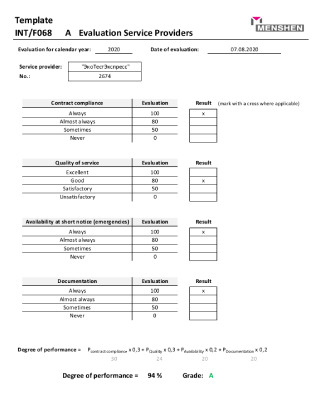- Unlocking Financial Potential: How Quantum AI Investment Transforms Wealth Building
- The Foundations of Quantum AI Investment
- Advantages of Leveraging Quantum AI in Investments
- Potential Drawbacks and Challenges
- How Quantum AI Investment is Reshaping Wealth Management
- Case Studies: Successful Implementations of Quantum AI
- Future Trends in Quantum AI Investment
- Implementing Quantum AI Strategies in Investment Portfolios
- Maintaining Competitive Advantage through Continuous Innovation
- Conclusion
Unlocking Financial Potential: How Quantum AI Investment Transforms Wealth Building
In recent years, the finance world has witnessed an extraordinary evolution marked by the integration of advanced technology into investment strategies. Among these technological marvels lies the domain of quantum AI investment, which combines the principles of quantum computing with artificial intelligence to create a transformative approach to asset management. This innovative solution promises to redefine traditional investment methodologies, offering unprecedented predictive accuracy, modeling capabilities, and risk analysis. As we delve deeper into this subject, it becomes clear how quantum AI can unlock a vast financial potential, paving the way for informed decision-making and robust portfolio management.
The significance of quantum AI investmentcannot quantum ai investment» be overstated. In the current fast-paced financial environment, where decisions must often be made in real-time, the computational speed and efficiency afforded by quantum technology grant investors a competitive edge. This blending of advanced algorithms with quantum computing introduces investment strategies that are not only faster but also leverage complex data sets that were previously deemed too intricate to analyze effectively. Thus, an understanding of this transformative investment strategy is essential for anyone looking to capitalize on future financial opportunities.
As we continue to explore the landscape of quantum AI investment, it is vital to examine its foundational elements, the potential benefits it brings to investors, and how it will shape the future of wealth building. This exploration will provide insights into how these technologies are applied in real-world scenarios, enabling investors to better navigate the complexities of modern finance.
The Foundations of Quantum AI Investment
At its core, quantum AI investment merges two revolutionary technologies: quantum computing and artificial intelligence. Quantum computers harness the principles of quantum mechanics, allowing them to process information in ways that classical computers cannot. This results in the ability to solve complex problems at lightning speed, making quantum technology a game-changer in data-heavy fields such as finance.
Artificial intelligence, on the other hand, enables machines to learn from experience, improving their ability to analyze patterns and make predictions. When these technologies come together, the synergy results in an investment modeling approach that is significantly more powerful than anything previously available. Investors can leverage quantum algorithms to optimize trading strategies, minimize risk, and generate higher returns.
| Quantum Computing | Utilizes quantum bits (qubits) to perform computations much faster than classic computers. |
| Artificial Intelligence | Employs algorithms that can learn and improve based on data input. |
Furthermore, the integration of quantum AI into investment decisions allows for a more nuanced understanding of market trends. For instance, quantum algorithms can process vast amounts of data from various sources, including social media sentiment, economic indicators, and market fluctuations. This multifaceted approach provides investors with insights that would otherwise be hidden, thus enhancing their decision-making capabilities.
Advantages of Leveraging Quantum AI in Investments
The advantages of adopting a quantum AI investment strategy are numerous. Primarily, the processing power of quantum computing allows investors to tackle massive datasets, uncovering hidden correlations and patterns that can significantly impact investment strategies. This capability dramatically enhances the accuracy of predictive modeling and risk assessment.
Moreover, the speed at which quantum algorithms operate means that traders can react to market changes almost instantaneously. This agility is crucial in high-frequency trading environments, where every millisecond counts. Consequently, investors who harness these technologies can gain substantial advantages over competitors who rely on slower, traditional methods.
Potential Drawbacks and Challenges
Despite its promise, there are potential drawbacks associated with quantum AI investment. One significant challenge includes the current limitations in quantum computing hardware and software, which may not yet be robust enough for widespread adoption. As the technology is still in its developmental stages, the risk associated with these investments remains comparatively high.
Additionally, there is a knowledge gap in understanding how to implement quantum AI effectively. Current finance professionals might lack the expertise to fully utilize these innovative tools, and training will be required to bridge this gap. As with any emerging technology, these hurdles will need to be addressed for quantum AI to achieve its full potential in wealth building.
How Quantum AI Investment is Reshaping Wealth Management
With the advent of quantum AI investment, wealth management is entering a new era characterized by data-driven decision-making. Investment managers are beginning to adopt quantum algorithms to bolster their portfolios and provide clients with enhanced service offerings. This transition is reshaping the landscape, allowing for more personalized investment strategies tailored to individual client needs.
One such application is in portfolio optimization. Quantum algorithms can simultaneously analyze numerous potential asset combinations, determining the optimal allocation for achieving maximum returns while minimizing risk. This kind of analysis was previously not feasible with classical computational methods, making its introduction a groundbreaking development.
Additionally, by integrating quantum computing with existing financial models, investment firms can conduct rigorous stress testing scenarios. Such analyses are crucial for assessing how portfolios will perform under various economic conditions. This predictive capacity allows managers to make informed decisions that can safeguard client investments.
- Enhanced data analysis capabilities
- Increased predictive accuracy
- Personalized wealth management solutions
- Greater efficiency in trading operations
- Optimized portfolio management
Case Studies: Successful Implementations of Quantum AI
Several organizations are pioneering the use of quantum AI investment strategies, achieving significant success. For example, a leading hedge fund has developed quantum algorithms that analyze market data in real time, allowing them to execute trades with unparalleled precision. This fund has reported substantial improvements in profit margins, affirming the benefits of integrating quantum techniques into their trading strategy.
Another notable example is a financial institution that utilized quantum AI for risk assessment and management, allowing them to quantify risk exposures across multiple asset classes more accurately. By employing quantum simulations, they significantly reduced their previous reliance on more traditional methods, which were often limited by computational constraints.
Future Trends in Quantum AI Investment
The future of quantum AI investment holds immense promise, driven by continuous advances in quantum computing technology and AI capabilities. As hardware becomes more sophisticated and accessible, we can expect an influx of investment applications across various sectors. This trend will democratize access to high-level analytical tools, enabling a wider range of investors to benefit.
Furthermore, as regulatory frameworks evolve to accommodate these new technologies, broader adoption will likely occur. Financial institutions must adapt to this shift to remain competitive, leading to revitalized investment frameworks that prioritize speed, efficiency, and accuracy. In doing so, the finance sector as a whole will be transformed.
Implementing Quantum AI Strategies in Investment Portfolios
Successfully implementing quantum AI investment strategies within investment portfolios requires a systematic approach. This includes selecting the right technology partners, understanding the necessary frameworks for deployment, and establishing robust training programs that equip financial professionals with the skills they need.
First and foremost, organizations should evaluate existing quantum computing platforms and identify those that align with their investment objectives. Collaborating with technology creators or consultants specializing in quantum AI can provide valuable insights and facilitate effective implementation.
- Evaluate the specific needs and goals of your investment strategy.
- Research available quantum computing platforms and tools.
- Partner with experts to ensure integration is seamless.
- Train staff members on using quantum algorithms effectively.
- Continuously assess and refine strategies based on performance metrics.
Maintaining Competitive Advantage through Continuous Innovation
As the field of quantum AI investment matures, it will be crucial for investors to remain vigilant and adaptable. Continuous innovation will define competitive advantage, necessitating a commitment to new developments in technology and finance. Firms that prioritize ongoing research into quantum algorithms, machine learning, and other complementary technologies will be better positioned to lead in this evolving landscape.
Ultimately, by fostering a culture of innovation, firms can ensure they are not only participants in the financial sector but also pioneers. This proactive approach will be vital in unlocking the full potential of quantum AI and securing a bright future for investors.
Conclusion
In summary, quantum AI investment stands at the forefront of a financial revolution, offering profound transformations to wealth building and management. By leveraging the strengths of quantum computing and artificial intelligence, investors can access enhanced capabilities that allow for superior decision-making, improved risk assessments, and optimized investment strategies.
As technology progresses, it will be imperative for finance professionals to embrace the potential of quantum AI to ensure they remain competitive in an increasingly data-driven world. This dynamic landscape heralds a new era of investment sophistication, equipped to meet the demands of tomorrow’s financial market.



















